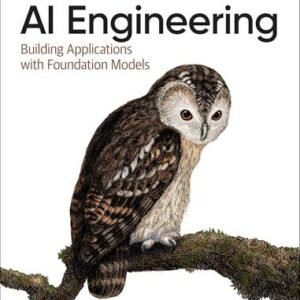In an era defined by rapid technological advancements, artificial intelligence (AI) stands at the forefront of a revolution in educational practices. The integration of AI-powered tools into classrooms and learning environments promises not only to enhance student engagement but also to personalize learning experiences in unprecedented ways. From intelligent tutoring systems that adapt to individual learning speeds to administrative software that streamlines operations for educators, the implications of AI technology in education are profound. This article delves into how these innovations are reshaping educational dynamics, equipping both students and teachers with the resources needed to thrive in a complex and ever-evolving global landscape. As educational institutions begin to embrace this transformative potential, the question arises: how will AI redefine the future of learning?
Table of Contents
- The Role of AI in Personalized Learning Experiences
- Enhancing Teacher Effectiveness through AI Integration
- Addressing Equity and Accessibility with AI Solutions
- Future Considerations for Sustainable AI Implementation in Education
- In Retrospect
The Role of AI in Personalized Learning Experiences
Artificial Intelligence is revolutionizing personalized learning by leveraging vast amounts of data to tailor educational experiences to individual students. This technology enables educators to understand the unique learning styles, strengths, and weaknesses of each student, creating a more engaging atmosphere. With the integration of AI algorithms, learning platforms can analyze student interactions and performance metrics, allowing for:
- Adaptive Learning Paths: Curricula that adjust in real-time to meet students at their level of understanding.
- Intelligent Tutoring Systems: Personalized feedback and support that guides students through complex topics.
- Performance Analytics: Detailed insights that help educators track progress and identify areas needing improvement.
Furthermore, AI-powered tools facilitate collaborative learning environments by recommending resources tailored to group needs. For instance, by examining students’ past performances and collaboration styles, these tools can suggest optimal project groups, enhancing teamwork and collective problem-solving abilities. Here’s a brief comparison of traditional versus AI-enabled personalized learning:
| Aspect | Traditional Learning | AI-Enabled Learning |
|---|---|---|
| Customization | One-size-fits-all approach | Tailored to individual needs |
| Feedback | Delayed, infrequent | Real-time, continuous |
| Engagement | Static materials | Interactive, dynamic resources |
Enhancing Teacher Effectiveness through AI Integration
As artificial intelligence continues to reshape various sectors, the educational landscape is experiencing a significant transformation. AI-powered tools are being harnessed to not only lighten the workload of educators but also to enhance their effectiveness in the classroom. By automating administrative tasks, such as grading and lesson planning, teachers can dedicate more time to fostering meaningful interactions with their students. This shift allows for a more personalized learning experience, where educators can tailor their teaching methods to suit diverse learning styles.
Furthermore, AI integration offers valuable insights through data analytics, enabling educators to track student progress and identify areas needing improvement. Key benefits include:
- Real-time feedback: AI systems can provide instant assessments, which helps teachers adjust their strategies promptly.
- Customized learning paths: Algorithms can suggest resources and activities tailored to individual students’ strengths and weaknesses.
- Enhanced collaboration: AI tools facilitate communication between teachers, students, and parents, creating a robust support network.
the integration of AI not only empowers teachers but also cultivates an adaptive educational environment that aligns with the needs of today’s learners.
Addressing Equity and Accessibility with AI Solutions
Artificial Intelligence has the potential to revolutionize the educational landscape by significantly enhancing equity and accessibility for all learners. Personalized learning platforms use AI algorithms to tailor educational experiences to the individual needs of students, allowing those with diverse learning styles and abilities to thrive. These platforms can identify areas where students require additional support and adjust content delivery accordingly. Moreover, AI-driven tools can facilitate multilingual education, making resources available in various languages, thus removing barriers for non-native speakers and ensuring all students have equal access to quality materials.
Furthermore, AI solutions are instrumental in providing resources for students with disabilities, enabling a more inclusive environment. Tools such as speech recognition software, text-to-speech applications, and visual aids ensure that learners with physical or cognitive challenges can participate fully in the educational process. By utilizing smart content delivery systems, educators can effortlessly monitor student engagement and comprehension, allowing them to deploy targeted interventions. The integration of AI in education is progressively closing the achievement gap and fostering an environment where diversity in learning experiences is embraced.
Future Considerations for Sustainable AI Implementation in Education
As educational institutions increasingly integrate AI-powered tools into their curricula, it’s crucial to consider the sustainability of these implementations. Future strategies should focus on ensuring equitable access to technology for all students, regardless of socio-economic background. This involves collaborating with tech providers to create affordable solutions and promoting initiatives that foster digital literacy among underrepresented communities. Additionally, institutions must prioritize the adaptability of AI systems to accommodate diverse learning styles and needs, enhancing personalized education and supporting students’ individual growth.
Moreover, fostering a culture of continuous evaluation and feedback is essential to sustain AI integration. By establishing comprehensive metrics to assess the effectiveness of AI tools in improving educational outcomes, schools can make informed adjustments and improvements. Emphasis should be placed on forming interdisciplinary teams that include educators, technologists, and ethicists to address potential biases and ethical concerns. This collaborative approach will help ensure that AI implementations not only enhance educational experiences but also promote responsible and ethical use of technology in teaching and learning environments.
In Retrospect
the integration of AI-powered tools into educational settings is not merely a trend; it represents a fundamental shift in how knowledge is imparted and acquired. As we have seen, these technologies are enhancing personalized learning experiences, streamlining administrative tasks, and providing educators with valuable insights into student performance. However, the successful implementation of these tools requires a thoughtful approach that prioritizes equity, training, and ethical considerations.
As institutions continue to explore the potential of artificial intelligence, it is essential for stakeholders—including educators, policymakers, and technology developers—to collaborate and ensure that the benefits of these innovations are accessible to all learners. By fostering an environment that embraces change while safeguarding the core values of education, we can truly transform the educational landscape for future generations. The journey has just begun, and its trajectory will undoubtedly shape the future of learning in profound ways.





